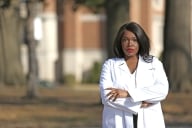You have /5 articles left.
Sign up for a free account or log in.
If this Democratic primary season has proven anything, it's that endorsements don't decide elections. That hasn't stopped Pennsylvania's political elite from supporting their candidates of choice, whether it's Hillary Clinton (Gov. Edward G. Rendell and Philadelphia Mayor Michael Nutter) or Barack Obama (Sen. Bob Casey). Nor did it preclude a firestorm of publicity when the University of Pennsylvania's student newspaper did the unthinkable and -- gasp! -- endorsed Clinton to its readership, most of which, like that at many elite colleges, overwhelmingly backs Obama.
And if that barrage of on-campus political activity wasn't enough, the influential Penn Democrats had already announced an endorsement of their own, of Obama, last month. The crossfire intensified last week when student leaders from several Philadelphia-area colleges jointly signed a letter, dated April 18, affirming their support of the Illinois senator. The unusual letter has raised nascent questions about the proper role of student government leaders and the level of student activism in an election that has drawn unprecedented energy from younger, college-age voters.
The political energy spilling over onto college campuses is only a symptom of Pennsylvania's sudden significance in a drawn-out primary season that has already begun fraying nerves and inflaming tensions on the Democratic side. U. Penn, which has never been known as one of the most activist members of the Ivy League, has transformed into a political battleground whose significance brought The Colbert Report to campus (where Clinton was a guest) last week and elevated The Daily Pennsylvanian's primary endorsement into an event worthy of a "MUST READ" press release from the Clinton campaign.
"I wouldn't say that we’re a hotbed of activism," said Ashwin Shandilya, a Penn sophomore who is the newspaper's editorial page editor. Still, he conceded that the extended election season, which has led to the state's most expensive primary campaign, "kind of put everything on steroids."
"Some will be surprised that Penn, an Ivy League school, would reject Obama's appeal to creative class 'wine trackers.' But the university is known as being heavily pre-professional, a favorite choice of New Yorkers, and in general, much less of an activist campus than brethren such as Brown, or even Yale and Harvard. So all in all, the endorsement is not a huge shock," wrote Dana Goldstein at TAPPED, The American Prospect magazine's group blog (even though the DP found that 73 percent of students on campus supported Obama).
Embattled campus Clinton supporters found the endorsement all the more significant in a state where the New York senator still holds a lead in most polls going into today's voting, despite a surge in voter registrations that analysts saw as a potential boost for Obama, who is still outspending Clinton 2-to-1 in television advertising.
Meanwhile, the joint Obama letter -- signed by the student body presidents of Penn, Temple and Villanova Universities and Haverford College -- takes pains to "note that we are speaking on behalf of our own views as prominent student leaders at our institutions, not on behalf of the student body or our student government," even as it begins with the line, "We, the student government leaders of schools in the Philadelphia region...."
Jason Karsh, the chairman of Penn's Undergraduate Assembly, said the letter had been in the works for a couple of weeks, even though the leaders released it to campus and local media a day after the DP's Clinton endorsement. The letter emphasizes Obama's support of higher education and his position that "leadership from government can help keep the American economy at the forefront of innovation and progress."
"Barack’s campaign has brought millions into the ranks and has truly relied on a grassroots effort that continues to unify more and more Americans in his campaign," it states. "As members of the ‘youth’, and as the rising leaders of tomorrow, this hope and belief in a new kind of politics means more than just the shibboleth of ‘change’ and ‘hope.’"
Karsh has no illusions about the value of endorsements per se. "Not that I believe that our endorsements ... result in people changing their minds, but at least it will get people talking," he said, both about the presidential candidates and about the role of student leaders in political engagement.
The letter's argument hinges on Obama's plans to expand access to higher education: "Barack’s plan to address the concern of financial assistance for higher education particularly resonates with us. His plans to simplify the application process for financial aid, expand Pell Grants to low-income students, streamline Direct Loans for students and create the American Opportunity Tax Credit are critical in truly making higher education available to any American who wants to go to college."
(For what it's worth, Clinton's higher education plan is more or less the same.)
Prominent Clinton supporters in the Philadelphia area "took a very strong stance ... and it didn’t feel like they were representing the voice of students," said Juan Galeano, Temple's student body president.
Perhaps inevitably, the leaders' endorsement letter has also given way to some political sniping on campus. Students have wondered if their elected leaders should step into the national political arena at all, while others think it was inappropriate to go around traditional channels and sign jointly with leaders of other colleges.
"I can see how it would kind of send a mixed message to either Hillary supporters in the [Undergraduate Assembly] ... or Republicans in the UA," Shandilya said.
Or, as a self-described "alumnus" put it in a comment to the DP's story: "DO YOU REALLY THINK ANYONE CARES?"








